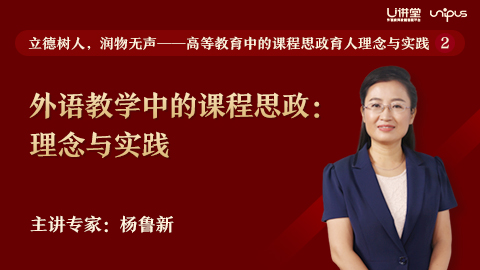意义
课堂是育人的地方,所有的课堂都有思政要求
课程思政是高校思想政治工作的组成部分,是社会主义办学方向;立德树人要引领思想、塑造价值观
;知识导向和价值引领相结合
价值本源
课程是学科知识的整合,课程思政就是将思想政治渗透到知识、经验或活动过程,价值理性和工具理性的统一;课程承载思政、思政寓于课程
教师不仅要传授知识,还要重视知识与人与生活多向度的交融关系;选择正确的价值维度:知识导向与价值引领、专业技能训练与人的全面发展;意识形态主导性与课程丰富多样性;合目的性、合规律性与合必然性的统一
高校类型
规律:思想工作规律:言之有物,言之有理
育人规律:现实需求,接地气,亲和力和感染力
成长规律:适合学生的专业、学科、学段
必然性:思政与各类课程的协调;课堂内外、校园内外的协同
生成路径
教师是关键因素
教材是重要依托
挖掘思政资源:人文教育、跨文化素养、跨文化思维、中西文化对比
选篇很重要:A Wise Old Owl
If I Were A Boy Again
四个案例
中西文化对比案例
guessing game: fetival, children's favorite, pumpkin lanteen
origin: dead souls revisit earth
comparison: attitude toward dead souls
worship ancestors, etiquette/filial piety
assignment: compare contrast Chinese and foreign festivals
further reading
批判性思维案例
critical thinking, courtroom defense example, how to evaluate arguments, premises, conclusion, example, chinese identity how do we in the west make sense of China and its phenomennal rise?
高中英语读写课人文教育“爱”
whose hands? baby's hands, daddy's hands
how were the hands, what could the hands do, why such hands, a son, a husband, a father
What did i do and how did i feel? how were th hands and what did i think of them?
which sentence is most impressive?
describe something
人文教育案例“环境保护”
lead in
listen to the dialogue
speak out
watch the MV, Earth Song
speak out: suppose you were one of the subjects in the MV, create a dialogue


